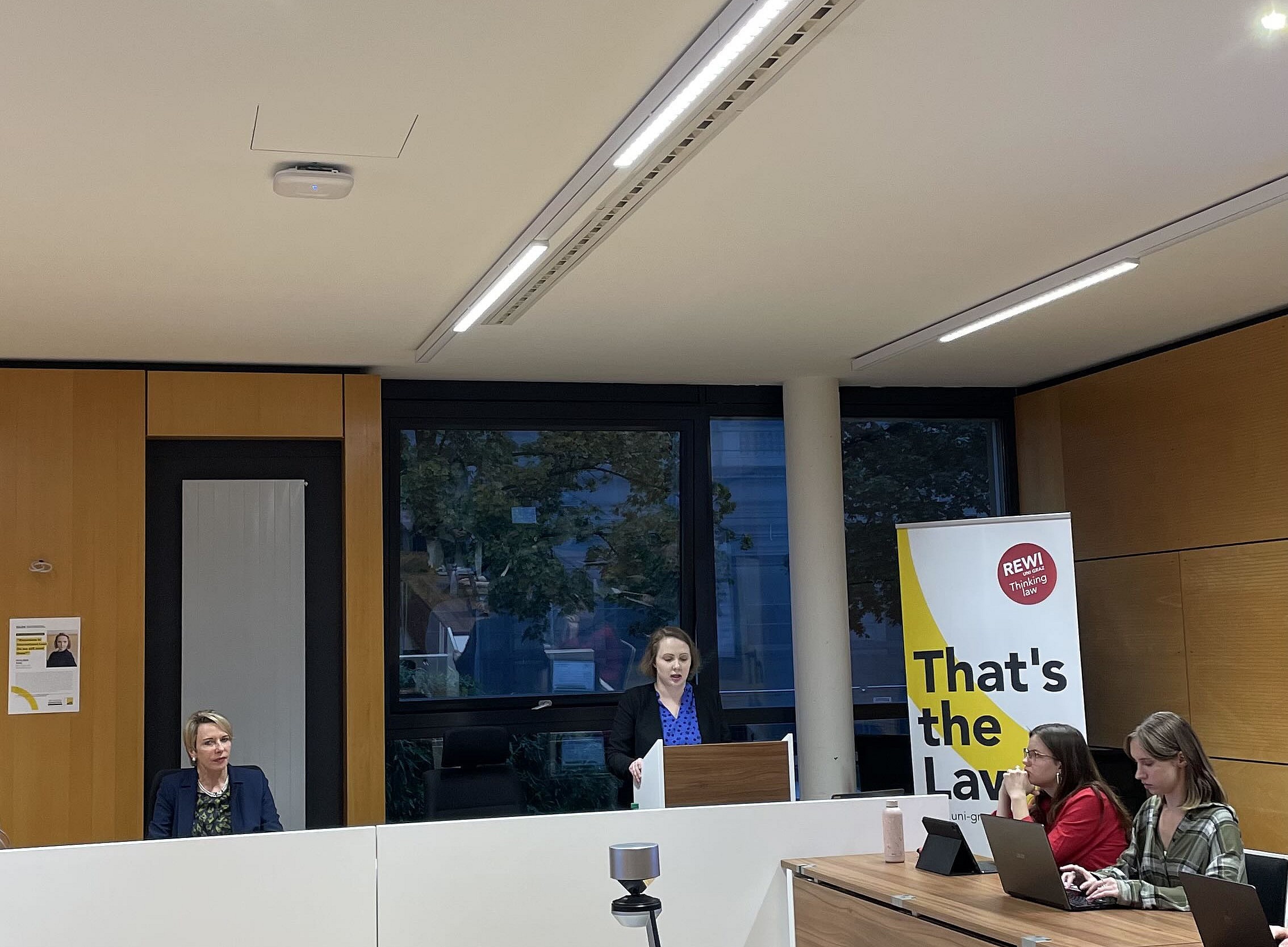The first GILDS discussion after the summer break took place on 10 October 2024. The guest speaker was Dr. Agata Kleczkowska with a lecture on ‘Retorsions in International Law: Do We Still Need Them?’
Retorsions are unfriendly but legal measures taken in response to an illegal or unfriendly act by another state. However, retorsions are as such not regulated by international law, as the term refers to all measures that are at the discretion of states. Retorsions differ from countermeasures, which are an inherently unlawful reaction to a violation of international law. In contrast to countermeasures, retorsions offer states more flexibility. On the one hand, they are measures that per se do not violate international law; on the other hand, retorsions do not have to be terminated once the objective has been achieved. Retorsions can be directed against both legal and illegal acts and do not require prior information or negotiation with the affected state. Furthermore, they can be identical, similar or completely different to the behaviour of the violating state. Their aim may be to damage certain interests of a state in order to enforce, punish or deter certain behaviour. The success of retorsions ultimately depends on the political and economic power of a state.
Notably, a distinction must be made between retorsions and sanctions. The broad and rather vague term "sanctions" refers to a wide range of enforcement measures in international law, which on its own says nothing about the legality or illegality of the respective measures.
In conclusion, Dr Agata Kleczkowska came to the conclusion that retorsions, as legal and above all flexible reactions to illegal and unfriendly acts by other states, are still very important. They do not require prior warning or justification, nor do they have to be reversible. Moreover, they do not necessarily have to be aimed at ensuring that a state fulfils its obligations under international law.
The Institute of International Law and International Relations at the University of Graz would like to thank Dr. Agata Kleczkowska for her insightful lecture as part of the GILDS lecture series and looks forward to further exciting lectures within the series. Further thanks go to all in-person and online participants for the lively discussion.
